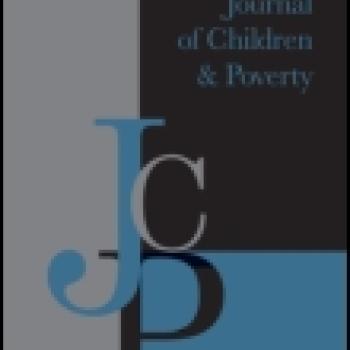Publication Information

Participatory research into how people living in material poverty define and experience well-being and ill-being is increasingly common in developed and developing countries. Such research highlights the importance of experiential aspects such as being respected and able to preserve one's dignity, and having meaningful choices. But these findings rarely cover children's experiences and are often not contextualised or triangulated with other data. The paper will extend this exploration using data from qualitative research with a sub-sample of children aged 11 to 13 in three urban and rural communities, drawn from Young Lives, a long-term international research project investigating the changing nature of childhood poverty in four countries, including Ethiopia (www.younglives.org.uk).
It addresses firstly how understandings of a good life and what is needed to achieve this differ between different types of community and children from different backgrounds within those communities (for example, boys and girls, children from richer or poorer households), and secondly the place of social relationships in understandings of a good life. The paper confirms the importance of children taking at least a "partial role" in measuring and monitoring their well-being (Ben Arieh, 2005, 575) and provides an example of how this might be done.
Key words: Children; well-being; poverty; Ethiopia; qualitative; participatory
The final published version of the article is available on the journal website.

Participatory research into how people living in material poverty define and experience well-being and ill-being is increasingly common in developed and developing countries. Such research highlights the importance of experiential aspects such as being respected and able to preserve one's dignity, and having meaningful choices. But these findings rarely cover children's experiences and are often not contextualised or triangulated with other data. The paper will extend this exploration using data from qualitative research with a sub-sample of children aged 11 to 13 in three urban and rural communities, drawn from Young Lives, a long-term international research project investigating the changing nature of childhood poverty in four countries, including Ethiopia (www.younglives.org.uk).
It addresses firstly how understandings of a good life and what is needed to achieve this differ between different types of community and children from different backgrounds within those communities (for example, boys and girls, children from richer or poorer households), and secondly the place of social relationships in understandings of a good life. The paper confirms the importance of children taking at least a "partial role" in measuring and monitoring their well-being (Ben Arieh, 2005, 575) and provides an example of how this might be done.
Key words: Children; well-being; poverty; Ethiopia; qualitative; participatory
The final published version of the article is available on the journal website.

